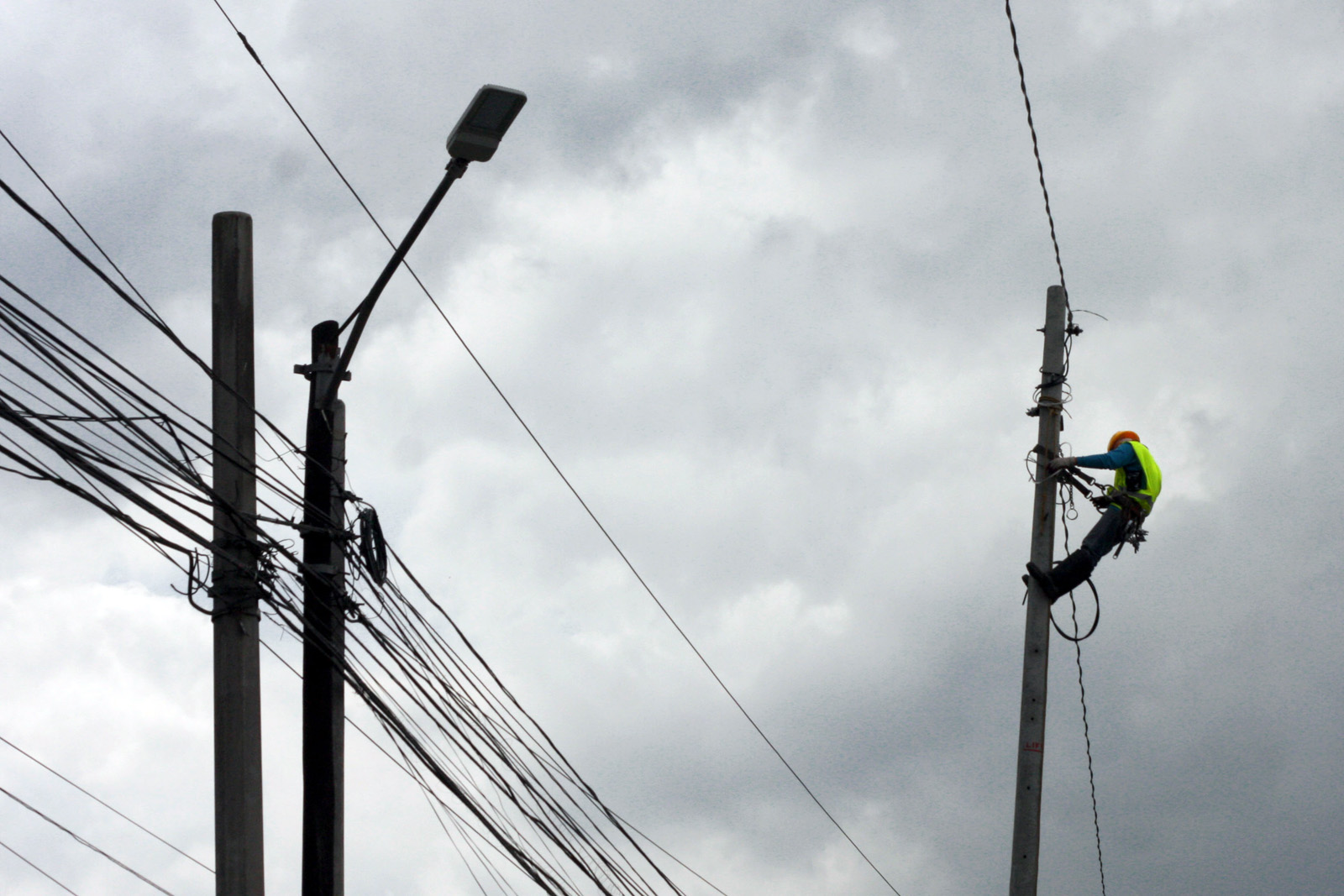GENERAL SANTOS CITY (MindaNews/06 November) — The Department of Public Works and Highways (DPWH) has renamed the city’s 19.6-kilometer circumferential road after Albert Morrow, one of the area’s pioneers and local heroes.
 LONELY CLIMB. A worker braves the inclement weather as he installs new sets of streetlamps along the national highway in General Santos City 30 June 2014. File Photo by ROMMEL G. REBOLLIDO
LONELY CLIMB. A worker braves the inclement weather as he installs new sets of streetlamps along the national highway in General Santos City 30 June 2014. File Photo by ROMMEL G. REBOLLIDO
The renaming of the P1.135 billion vital road network, which was completed last year, was based on Department Order No. 112, series of 2017 issued by Public Works and Highways Secretary Mark Villar.
The Sangguniang Panlungsod or city council here passed earlier this year Resolution No. 367, series of 2017, requesting the DPWH central office to name the circumferential road as Albert Morrow Boulevard.
City Councilor Rosalita Nunez, author of the resolution, said the move was aimed to give due recognition to one of the city’s pioneer settlers and among the initial architects of the area’s development.
“We are very happy for this development. Finally I had fulfilled my promise to my late mother-in-law to give justice to our local hero Albert Morrow,” she said in a statement Monday.
She credited such development to City Mayor Ronnel Rivera and other city officials, members of the Pioneers-Descendants of General Santos City Inc. and “history-conscious” residents.
In January last year, the local government, through the city council, conferred a posthumous recognition and honor to Engr. Albert Morrow “for selfless act of heroism as well as his historical contribution toward the growth and development of General Santos City.”
During the Japanese occupation, Morrow succeeded Gen. Paulino Santos as administrator of the then National Land Settlement Administration.
A civil engineer, Morrow designed and supervised the construction of the Siluay (now Silway) Irrigation System, the city’s biggest and most important irrigation facility.
The facility connects three major irrigation systems — Siluay and Klaja and Konel.
“(Morrow) supervised the settlement plan, including urban layout, of what would become General Santos City,” Vice Mayor Shirlyn Banas-Nograles cited in a resolution.
According to historical accounts, Japanese forces based in the city had made a threat to kill 28 hostages and prisoners of war who were then suspected of aiding local anti-Japanese guerrillas.
“In a selfless act of heroism, Engr. Albert Morrow, chose to commit hara kiri (suicide) through the barrel of a gun to stop the atrocities,” the vice mayor noted.
As a result of his “honorable death,” she said Japanese Gen. Oishi ordered to halt the killings as tribute to Morrow.
Hara kiri is a form of Japanese ritual suicide and traditional code of behavior that values honor above life. (MindaNews)
